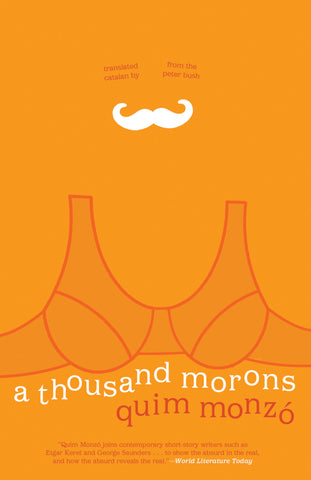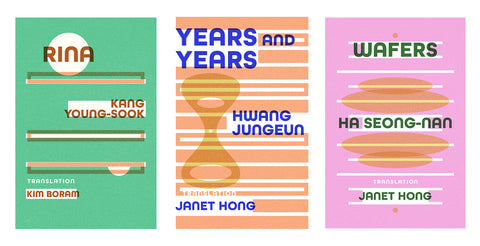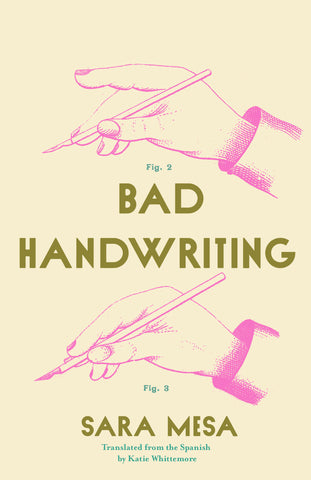A Thousand Morons
$12.95
by Quim Monzó
December 11, 2012
stories | pb | 111 pgs
5.5" x 8.5"
978-1-934824-41-2
“Today’s best known writer in Catalan. He is also, no exaggeration, one of the world’s great short-story writers.”
—The Independent
A Thousand Morons, Quim Monzó’s latest collection of short stories, is rife with very unfortunate characters. There’s the young boy in “A Cut” who is upbraided by his teacher when he rudely shows up for class with a huge gash in his neck. And the prince in “One Night” who tries everything to awaken a sleeping princess—yet fails completely.
Seeing that this is a Quim Monzó collection, absurdity offsets the “moronic” sadness. Such as “Love Is Eternal,” which features a man who decides to finally overcome his commitment issues and marry his dying girlfriend, only to have everything backfire; or “The Fullness of Summer,” in which a family meticulously records every moment of their gathering.
An excellent combination of longer, elegiac stories of “morons,” aging, and the passage of time—with short, flashier pieces that display Monzó’s wit and playfulness—make this one of the strongest collections in the oeuvre of Catalan’s short fiction master.
Translated from the Catalan by Peter Bush
•
About the Author: Quim Monzó was born in Barcelona in 1952. He has been awarded the National Award, the City of Barcelona Award, the Prudenci Bertrana Award, the El Temps Award, the Lletra d'Or Prize for the best book of the year, and the Catalan Writers' Award; he has been awarded Serra d'Ormagazine's prestigious Critics' Award four times. He has also translated numerous authors into Catalan, including Truman Capote, J.D. Salinger, and Ernest Hemingway.
About the Translator: Peter Bush is an award-winning translator who lives in Barcelona. His translations include Juan Goytisolo's Níjar Country, Teresa Solana's A Shortcut to Paradise, and Alain Badiou's In Praise of Love. More recently, he translated Josep Pla's The Gray Notebook.
•
“A gifted writer, he draws well on the rich tradition of Spanish surrealism . . . to sustain the lyrical, visionary quality of his imagination.”
—New York Times
"Monzó delivers drollery on nearly every page, in observations that are incisive and hilarious and horrifying, often all at once."
—Publishers Weekly





